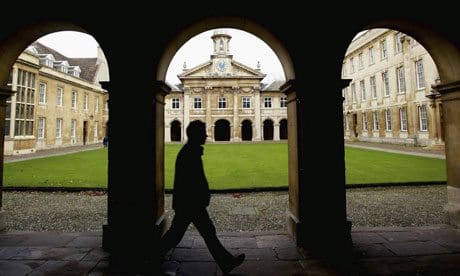Nobel Prize winner Sir Gregory Winter has praised the emerging tech talent within UK universities after Trinity College Cambridge and Central Working awarded £25,000 and business growth support to an entrepreneurial team of students.
Three University of Cambridge students were awarded support after winning the inaugural Trinity Bradfield Prize, a programme created this year to nurture teams of entrepreneurial students at the University of Cambridge who have developed ideas to address global challenges.
The Prize aims to set the standard for partnerships between business and academic institutions by nurturing talent and encourage fledgling businesses to remain and grow within the UK tech ecosystem.
The three winning teams were led by:
Simon Engelke – Has developed a method for battery electrode diffusion, dramatically improving the performance, charging speed, lifespan and energy efficiency of everything from smartphones and electric cars and power grids. Awarded £10,000 funding and three months of intensive business growth support with The Bradfield Centre
Saikat Subhra Ghosh – Has created a pole changing machine to effectively provide gear shifting for electric cars, drastically improving the energy efficiency and cutting costs to the consumer. Awarded £10,000 funding and three months of intensive business growth support with The Bradfield Centre
Nidhin Laji – Has developed 3D modelling programme for heart surgery in newborn children, providing surgeons in the operating room with a tailored map in procedures where survivability depends on the technical accuracy of miniscule incisions. Awarded £5,000 funding and three months of intensive business growth support with The Bradfield Centre
Alongside equity-free funding, all three teams will join The Bradfield Centre, the £20m deep tech collaborative workspace launched by Trinity College Cambridge, Central Working and the Department for Business, Energy and Industrial Strategy. Since opening in 2017, The Bradfield Centre has established itself as a key hub for both the local Cambridge tech cluster and the wider East Anglian region.
The Trinity Prize winners will receive the full support of Central Working, with a focus on forging valuable introductions to partners and investors who spur further growth and guiding the teams as they commercialise their ideas.
Sir Gregory was awarded the Nobel Prize for Chemistry in October 2018 for his work on the phage display of peptides and antibodies, which has proved vital in the development of antibody pharmaceuticals to treat autoimmune diseases and metastatic cancer.
As Master of Trinity College Cambridge, Sir Gregory oversaw the judging panel of the Trinity Prize, which attracted applicants from across the University of Cambridge.
Sir Gregory Winter, Master of Trinity College Cambridge, said: “University Departments across the country are potentially hotbeds for innovation and fledgling companies, provided we can offer researchers a business-friendly environment to develop their ideas. The Trinity Prize process has offered us a glimpse at the tech pioneers of the future and I’m excited to see how far they will go with support from the College and The Bradfield Centre.”
James Parton, Managing Director of The Bradfield Centre, said: “The Trinity Prize is a tremendous example of the education and business community joining forces to foster the next generation of tech talent. The calibre of intellectual property innovation currently being developed in UK universities indicates that Britain will remain a driving force in global technology for years to come. When empowered to follow through on their potential, they can bring huge benefit to Britain’s tech economy and further cement our place as the focal point of global technology.”


